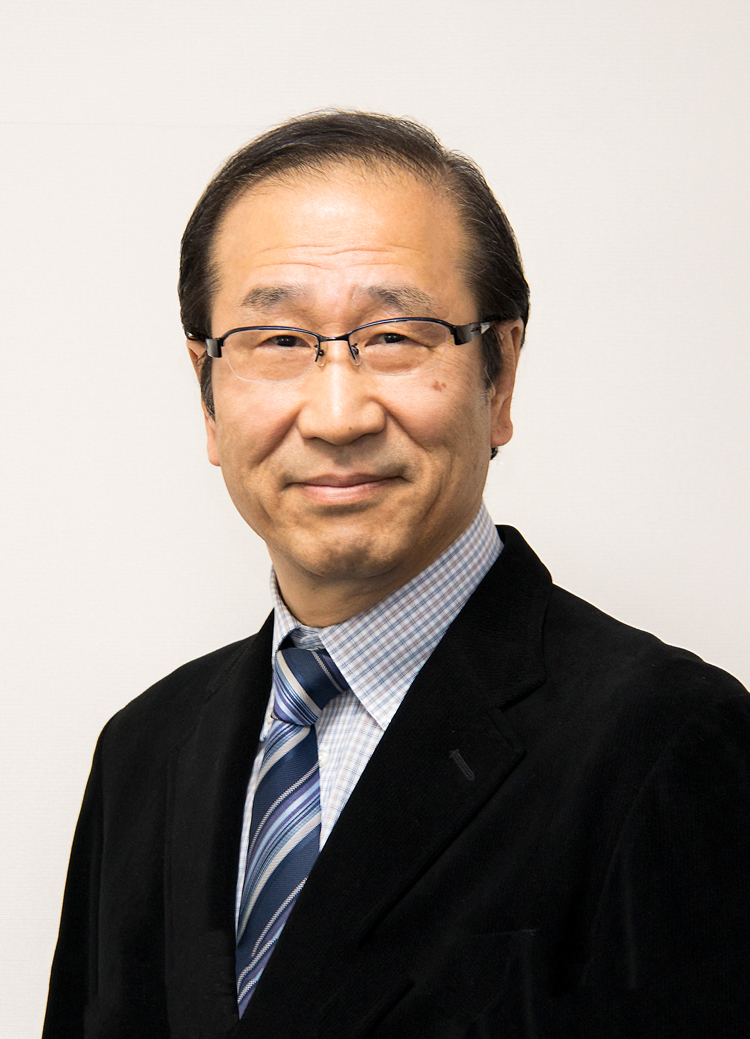
Susumu Kitagawa
Executive Vice-President and Distinguished Professor / iCeMS PI
Research Fields
Research Overview
Kitagawa's main research field is inorganic and material chemistry, in particular, chemistry of coordination space, and his current research interests are centered on synthesis and properties of porous coordination polymers/metal-organic frameworks.
He was the first to discover and to demonstrate "porosity" for metal complexes with gas sorption experiments (1997), whose materials are called porous coordination polymers (PCPs) or metal-organic frameworks (MOFs). To date, MOFs are classified as a new category of porous materials, as opposed to the conventional classifications of inorganic and carbon materials. Kitagawa pioneered the functional chemistry of MOFs, and discovered flexible MOFs, dissimilar to those of conventional porous materials. Today several hundred different MOFs are known, and over 7,000 articles on this class of materials have been published annually worldwide. The research developments built on his discoveries are anticipated to lead to radical innovations in materials science, with wide-ranging implications for both academia and industry. Chemical industry firms are producing MOF materials for use in purification, storage, and transportation of gases, among other applications. Kitagawa's achievement has blazed a trail to a new era for porous materials, vital to addressing energy and environmental issues and contributing to human welfare.
Biography
| 1974 | B.Sc., Kyoto University |
|---|---|
| 1976 | M.Sc., Kyoto University |
| 1979 | Ph.D., Kyoto University |
| 1979-1983 | Assistant, Department of Chemistry, Kindai University |
| 1983-1988 | Lecturer, Department of Chemistry, Kindai University |
| 1988-1992 | Associate Professor of Department of Chemistry, Kindai University |
| 1992-1998 | Professor of Department of Chemistry, Tokyo Metropolitan University |
| 1998-2017 | Professor of Department of Synthetic Chemistry and Biological Chemistry, Kyoto University |
| 2007-2012 | Deputy Director and Professor of Institute for Integrated Cell-Material Sciences, Kyoto University |
| 2013-2017 | Director and Professor of Institute for Integrated Cell-Material Sciences, Kyoto University |
| 2016-2018 | Deputy Director-General of KUIAS |
| 2017-2023 | Director of Institute for Integrated Cell-Material Sciences, KUIAS |
| 2020-2024 | Deputy Director-General of KUIAS |
| 2017- | Distinguished Professor of KUIAS |
| 2024- | Executive Vice-President for Research Promotion, Kyoto University |
Selected Papers
- R. Matsuda, R. Kitaura, S. Kitagawa, Y. Kubota, R. V. Belosludov, T. C. Kobayashi, H. Sakamoto, T. Chiba, M. Takata, Y. Kawazoe, Y. Mita, Highly controlled acetylene accommodation in a metal–organic microporous material. Nature 436, 238–241 (2005).
- S.Horike, S.Shimomura, S.Kitagawa “Soft Porous Crystals” Nat. Chem., 1, 695 -704 (2009).
- Y. Sakata, S. Furukawa, M. Kondo, K. Hirai, N. Horike, Y. Takashima, H. Uehara, N. Louvain, M. Meilikhov, T. Tsuruoka, S. Isoda, W. Kosaka, O. Sakata, S. Kitagawa, Shape-memory nanopores induced in coordination frameworks by crystal downsizing. Science 339, 193–196 (2013).
- H. Sato, W. Kosaka, R. Matsuda, A. Hori, Y. Hijikata, R. V. Belosludov, S. Sakaki, M. Takata, S. Kitagawa, Self–Accelerating CO Sorption in a Soft Nanoporous Crystal. Science 343, 167–170 (2014).
- N. Hosono, A. Terashima, S. Kusaka, R. Matsuda, S. Kitagawa, Highly responsive nature of porous coordination polymer surfaces imaged by in situ atomic force microscopy. Nature Chemistry 11, 109–116 (2018).
- C. Gu, N. Hosono, J. Zheng, Y. Sato, S. Kusaka, S. Sakaki, S. Kitagawa, Design and control of gas diffusion process in a nanoporous soft crystal. Science 363, 387–391 (2019).
- Y. Su, K Otake, J.J. Zheng, S. Horike, S. Kitagawa, C. Gu Separating water isotopologues using diffusion-regulatory porous materials Nature 611 , 289-294 (2022).
